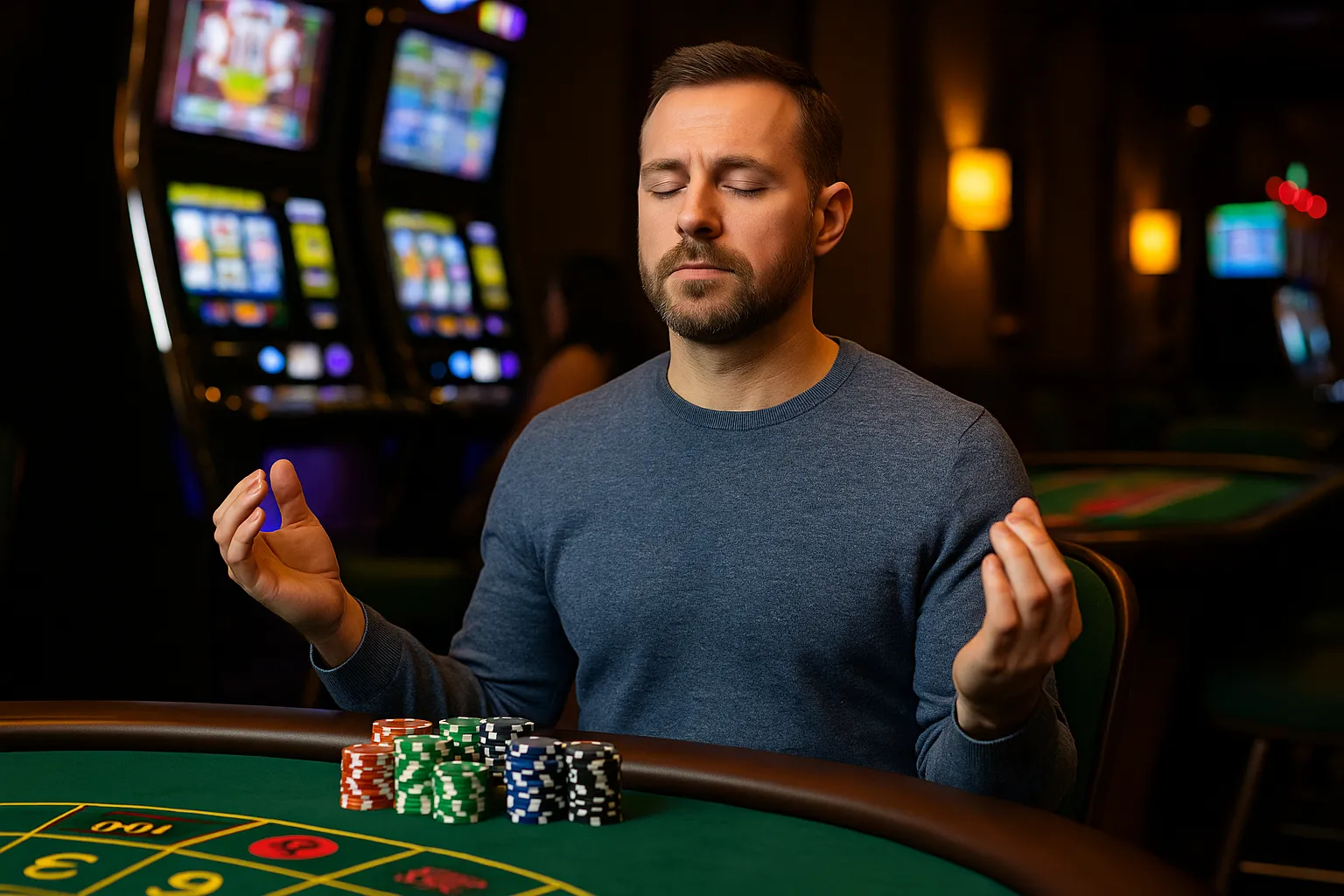Gambling can be exhilarating, but it also comes with risk. When you feel that rush of anticipation—whether you’re spinning the roulette wheel or placing bets on your favorite slot game—it’s easy for the excitement to drown out rational thinking. Mindfulness techniques, rooted in ancient contemplative traditions and validated by modern psychology, offer a way to bring awareness and calm into these high-stakes moments. In this article, I’ll explore how simple mindfulness practices can help you make better decisions at the casino (or online), reduce impulsive losses, and cultivate a healthier relationship with gambling.
The Emotional Roller Coaster of Gambling
Every gambler knows the sequence intimately: the first win sparks excitement; the losses that follow trigger frustration; then comes the urge to chase losses until the bankroll dwindles. This emotional roller coaster hijacks logical thinking. Neuroscientists have shown that under stress or excitement, the brain’s decision-making circuits shift toward the amygdala (the emotional center), suppressing activity in the prefrontal cortex (our rational planner). When that happens, you’re more likely to chase losses or overbet, hoping to recapture that initial thrill.
What Mindfulness Really Means
Mindfulness, at its core, is the practice of paying attention—on purpose, in the present moment, and nonjudgmentally. It’s not about emptying your mind; it’s about noticing thoughts, emotions, and bodily sensations as they arise. You learn to observe the impulse— “I feel a rush of anger that I’m losing”—rather than immediately act on it. Over time, this awareness creates mental space between impulse and action, making it possible to choose more skillfully.
In the world of new casinos uk, where platforms compete to captivate with flashy graphics and instant play, mindfulness can be your edge. It helps you recognize when marketing tactics or game design are steering you toward impulsive decisions.
Core Mindfulness Practices for Gamblers
There are three foundational techniques that every gambler can integrate:
Breathing Awareness
The simplest anchor for attention. Before you place a bet, pause for three mindful breaths, noticing the air entering and leaving your lungs. This brief interlude shifts neural activity toward the prefrontal cortex, giving you a moment to check in: “Am I betting because of strategy—or anger and frustration?”
Body Scan
Slot machines and poker tables can lull you into numbness. A quick body scan—starting from the top of your head and moving down to your toes—helps you reconnect with physical sensations. You might notice tightness in your shoulders or a racing heartbeat. Recognizing these cues signals emotional arousal, prompting a mindful choice: continue playing or take a break.
Labeling Thoughts and Emotions
When you feel the urge to chase losses, mentally label it. “There’s ‘chasing’ again,” you might note. Labeling disengages you from the content (“I’m a bad gambler”) and positions you as the observer. This tiny shift—“I notice chasing”—often reduces the compulsion itself.
Evidence That Mindfulness Can Curb Risky Behavior
Several studies in the past decade have explored mindfulness as a tool to reduce addictive or impulsive actions. In one clinical trial, problem gamblers who completed an eight-week mindfulness-based intervention reported fewer gambling sessions and smaller losses compared to a control group. Functional MRI scans showed increased connectivity in brain regions associated with self-control. Similarly, research on substance use has found that mindful awareness of cravings can reduce relapse rates. Though more gambling-specific studies are emerging, the neuroscientific underpinnings are consistent: mindfulness strengthens the brain’s executive control network.
Putting Mindfulness into Practice: Real-World Examples
I once coached a regular poker player who struggled with tilt—the state of emotional frustration that leads to poor play. We introduced a simple “bell practice”: whenever he heard the dealer’s bell or saw a new hand dealt, he’d pause and take two mindful breaths. That tiny break transformed his play. Instead of auto-piloting through hands after a bad beat, he’d reset mentally, lowering mistakes and gradually improving his win rate.
Another friend used interval timing on slot sessions: after every ten spins, she’d close her eyes and perform a 30-second body scan. She discovered that by the seventh spin, she felt tensed jaws and itchy fingertips—signals she was chasing. Recognizing that, she’d switch machines or step away, preventing further losses.
Creating a Mindful Gambling Routine
It’s one thing to learn techniques, another to stick with them. Here’s how you can build mindfulness into your sessions:
Pre-Game Intention Setting
Before you head to the casino or log in to an online site, sit quietly for a minute. Ask yourself: “What’s my purpose? Entertainment or profit?” A clear intention anchors your behavior. If your goal is fun, losses become part of the experience; if it’s profit, you’ll monitor stakes more vigilantly.
In-Game Checkpoints
Use natural breaks—dealer shuffles, game rounds, or notifications—as prompts to check in. Notice your mood, body, and thoughts. Are you calm? Or is craving pushing your hand toward the “Spin” or “Bet” button?
Post-Session Reflection
After you finish, spend a few minutes journaling. Note what worked: “My breath pause helped me avoid chasing after three losses.” Record moments when mindfulness slipped—and why. Over weeks, this feedback loop cements positive habits.
Avoiding Common Pitfalls
Applying mindfulness to gambling isn’t foolproof. Some players mistake it for a way to guarantee wins. Mindfulness enhances self-awareness and discipline—it doesn’t influence odds. Others slip by practicing only when winning, then abandon mindfulness during frustrating stretches. Consistency matters. Commit to using techniques before, during, and after each session, regardless of outcome.
Combining Mindfulness with Responsible Gaming Tools
Many modern platforms—including apps and online casinos—offer built-in tools: deposit limits, time alerts, and self-exclusion options. Pairing mindfulness with these safeguards creates a robust strategy. For example, if you notice tension rising, a pre-set time alert can signal a full stop. When used together, internal awareness and external controls dramatically reduce the risk of runaway losses.
The Bigger Picture: Well-Being Beyond Gambling
Mindfulness doesn’t just target your wins and losses; it spills over into daily life. Improved emotional regulation, better focus, and reduced stress benefit work, relationships, and overall mental health. In fact, many gamblers report that as their mindfulness practice deepens, they become less reactive to setbacks—both at the table and beyond.
Conclusion
Gambling will always carry uncertainty. Odds favor the house, emotions can cloud judgment, and adrenaline surges can lead to impulsive bets. Yet, by cultivating mindfulness—through simple breathing exercises, body scans, and thought labeling—you reclaim the space between impulse and action. That space becomes your most powerful ally in reducing losses, enhancing enjoyment, and maintaining control. Whether you’re at a brick-and-mortar casino or exploring the newest offerings at new casinos uk, a mindful approach can transform gambling from a roller coaster ride into a measured, even enlightening experience.








